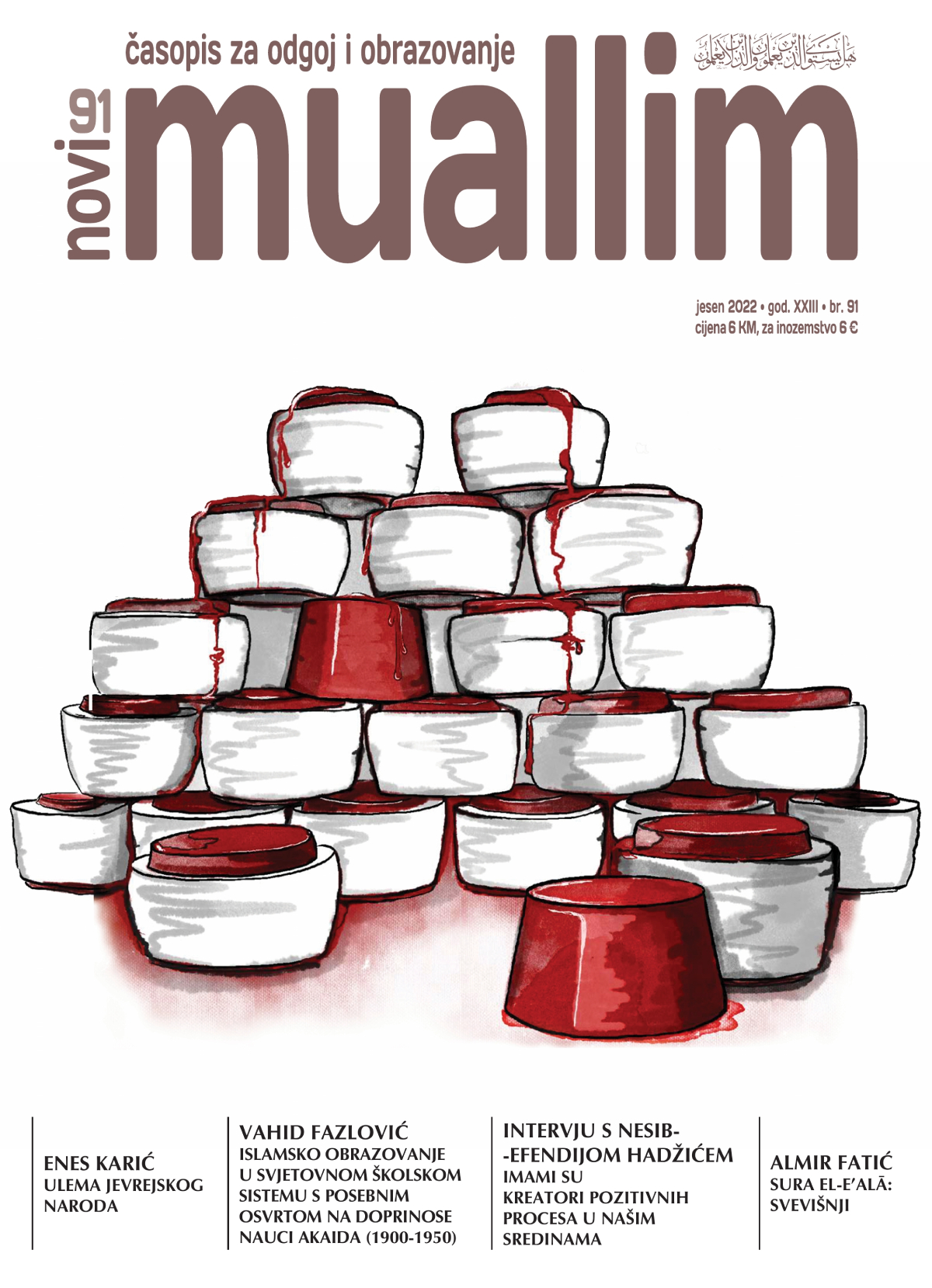THE ATTITUDE OF THE INTERNATIONAL COMMUNITY TOWARDS THE CRIMES COMMITTED DURING THE AGGRESSION ON BOSNIA AND HERZEGOVINA 1992-1995.
DOI:
https://doi.org/10.26340/muallim.v23i91.1960Keywords:
Republic Bosnia and Herzegovina, aggression, crimes, genocide, world’s political and military powers, the embargo on the imports of weapons, EU, resolutions of the UN Security Council, UN safe zones, Supreme Defence Council of Yugoslavia, denial of genocideAbstract
UDK: 94(497.6)"1991/1996":327.7
327.7:94(497.6)"1991/1996"
The world political and military powers which had the most significant role in shaping the events that were taking place by the end of the 20th century in Bosnia and Herzegovina, have delayed or avoided taking steps in preventing and, eventually ending the aggression and the genocide against peoples of Bosnia and Herzegovina. The member states of the EU and the United Nations Security Council with their differing political stands demonstrated a lack of will to end the war in Bosnia and Herzegovina thus marginalizing all the principles of International law. In this article, we focused on a number of topics in the light of various sources regarding the decisions or statements of decision-makers who had the power to change the course of the events that took place in the nineties of the 20th century in Bosnia and Herzegovina. The first topic of significance here is the interpretation in the public discourse of American, British, French, and others officials of the nature of the “conflict” that was taking place here and the reasons they quoted for not interfering therein. The next focal point is a detrimental decision taken by these powers to enforce an embargo on the imports of weapons by which the people of Bosnia and Herzegovina were denied their right to self-defence. A number of resolutions were brought by the UN Security Council, however, none of them made significant progress in the line of the protection of the civilians in the cities under siege. Here we particularly focused on the Resolution that declared safe zones. Deliberate evasion on the part of these world powers of the use of the term genocide in their public discourse is also a topic in this paper wherein we attempt to present their attitude towards crimes against humanity that literally took place right before their eyes. We here, on the bases of G. H. Stanton’s “phases of genocide” make a claim that the international community took part in what was asserted by Stanton as “the last phase of genocide”- denial of the genocide committed against Bosniaks. In this article, we affirm that the world powers that influenced important decision-making in the nineties of the 20th century in Bosnia and Herzegovina are responsible for numerous crimes committed by failing to prevent the escalation of the war and crimes therein.
Downloads
Published
How to Cite
Issue
Section
License

This work is licensed under a Creative Commons Attribution 4.0 International License.
Naknada:
a. Časopis ne naplaćuje naknadu za obradu članaka (APC) i naknadu za podnošenje članaka.
Autori koji objavljuju u ovom časopisu pristaju na sljedeće uvijete:
- Autori zadržavaju autorska prava i pružaju časopisu pravo prvog objavljivanja, pri čemu će rad jednu godinu po objavljivanju biti podložan licenci Creative Commons imenovanje koja omogućuje drugima da dijele rad uz uvijet navođenja autorstva i izvornog objavljivanja u ovom časopisu.
- Autori mogu izraditi zasebne, ugovorne aranžmane za ne-ekskluzivnu distribuciju rada objavljenog u časopisu (npr. postavljanje u institucionalni repozitorij ili objavljivanje u knjizi), uz navođenje da je rad izvorno objavljen u ovom časopisu.


